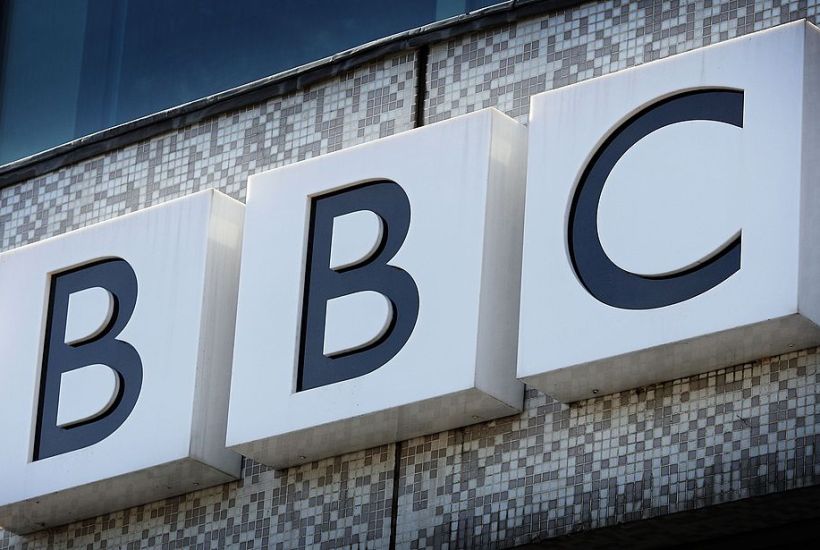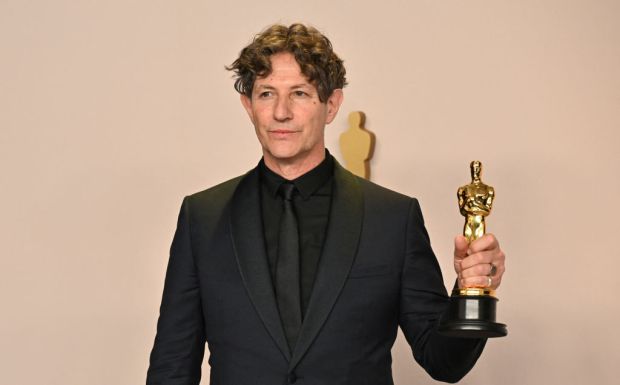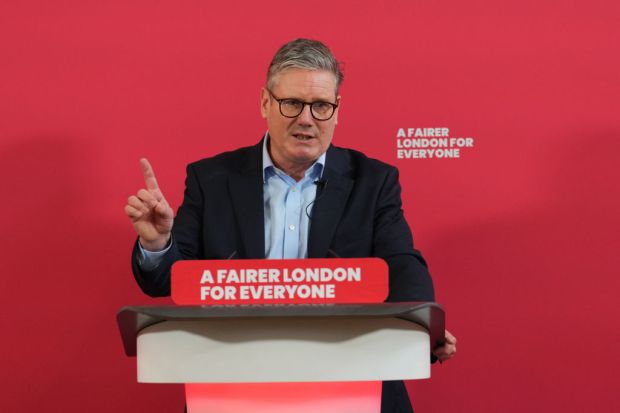Lord Hall, the outgoing director general of the BBC, used his valedictory interview on Radio 4’s Media Show this week to ruminate on the question of what funding mechanism should replace the licence fee. But to my mind, this was like listening to a man whose house is perched precariously on the lip of a crumbling cliff talking about whether he should plant an orchard. Somehow one feels it’d be a better use of Hall’s time to address the immediate problems rather than worrying about long-term issues. In the BBC’s case, the next Great Leap Forward might well be over the edge of the cliff.
It is undeniable that the licence fee – and the question of its viability in a digital age which offers consumers myriad ways of receiving news and entertainment – is beginning to look like a relic and is no longer fit for purpose. Arguments about what might replace it are thus both inevitable and justified. But how to fund the BBC in the future is a sideshow compared with the central question facing the BBC; which is how to stem the continuing loss of trust among a hefty proportion of the audience. That and the fact that a series of missteps has led to a dramatic worsening of the Corporation’s relationship with the government.
Many leavers, in particular, remain incensed by the way in which the Brexit debate was handled by the BBC. Hall’s response to these critics? The director general enunciated a new doctrine: the BBC will in future work towards ‘social diversity’ among its workforce. This was presented by Hall in class terms, as if the problem that the BBC has in connecting with Leave voters can best be addressed by hiring lots more working-class people.
But that’s not it. As Amol Rajan (who interviewed him for Radio 4) was quick to point out, ‘some critics’ (and here I am proud to be numbered among them, since I raised this question 20 years ago when I still worked for the Corporation) argue that the real problem is ‘political diversity’. Hall’s response?
‘I believe that when you join the BBC you hang whatever views you have by your coat on the door when you come in here.’
Really? Emily Maitlis’s outburst on Newsnight, in which the show’s star presenter offered her views on the Dominic Cummings’ lockdown row, shows how hopelessly unrealistic this pious hope appears to be. The idea that BBC people just instinctively don the magic cloak of impartiality when they are hired is total humbug. The fact is that the BBC is, more or less, a political monoculture; you will not find many Leave voters in its ranks, nor Trump supporters, nor Boris Johnson enthusiasts. And though most of my ex-colleagues do, I think, try to be impartial, most of them fail most of the time. The BBC finds it impossible to admit this reality and behaves as if everything is going splendidly well and all these problems are well in hand.
So while Lord Hall could assure us all that 20 per cent of the BBC workforce will in future be people from BAME backgrounds, he said nothing about how the organisation intends to correct the increasingly obvious political bias that afflicts its output. When it was pointed out that only 44 per cent of people trust BBC journalists to ‘tell the truth’ and that among the C2DE social classes that figures falls to 37 per cent, he responded that in comparison to other news providers these were very good figures. Yet if more than half the population don’t trust your reporters to tell the truth, is that really a satisfactory state of affairs for a broadcaster whose ambition is to be the world’s most trusted source of news?
As for alternatives to the licence fee, Hall confessed himself quite taken with the way the Germans pay for their public service broadcasting – the rundfunkbeitrag– a tax levied on all households and currently costing about 17 euros (£15) a month. It’s obvious why this would commend itself to the BBC. It would be difficult to evade and it would guarantee the organisation a large and stable income. It would be an hypothecated tax, like the licence fee, but handily it would be uncoupled from ownership of an actual television set. What’s more, said Lord Hall, it could be a progressive tax, so the richer you are the more you have to pay. But such a tax would be just as unpopular as the licence fee; after all, the reason why the Corporation is so disliked by so many is because they feel it has no sympathy for them, no understanding of their motivation and aspirations and constantly lectures them about what they should think and how they should act.
I have rarely met anyone who had a bad word to say about Tony Hall personally; he is by all accounts a kindly man and a considerate and thoughtful boss. But when he leaves the Corporation in a few weeks’ time he leaves it facing a threat that he has done precious little to counter. The BBC cannot thrive in the long term unless it can once again command the support of a large, bipartisan majority in the country. That means regaining the trust of millions of people who no longer think the BBC speaks to them or for them. Set against that challenge the question of the funding mechanism for the organisation seems almost trivial. Time is short and the foundations are crumbling. This is no time to be planting trees.
Got something to add? Join the discussion and comment below.
Get 10 issues for just $10
Subscribe to The Spectator Australia today for the next 10 magazine issues, plus full online access, for just $10.




















Comments
Don't miss out
Join the conversation with other Spectator Australia readers. Subscribe to leave a comment.
SUBSCRIBEAlready a subscriber? Log in